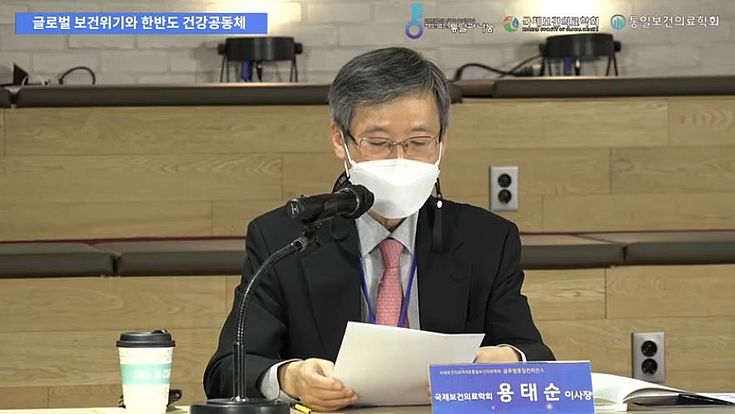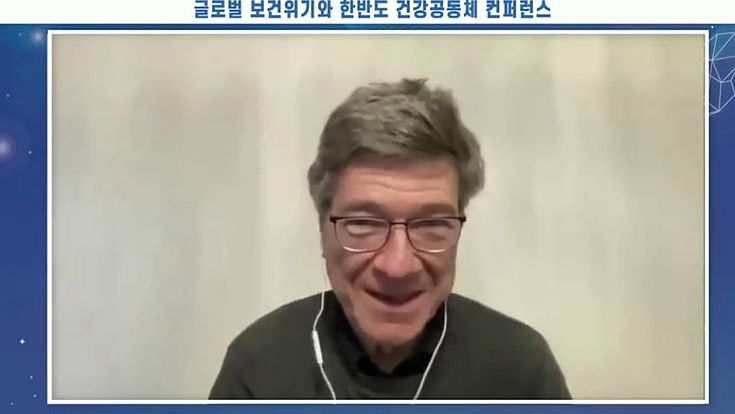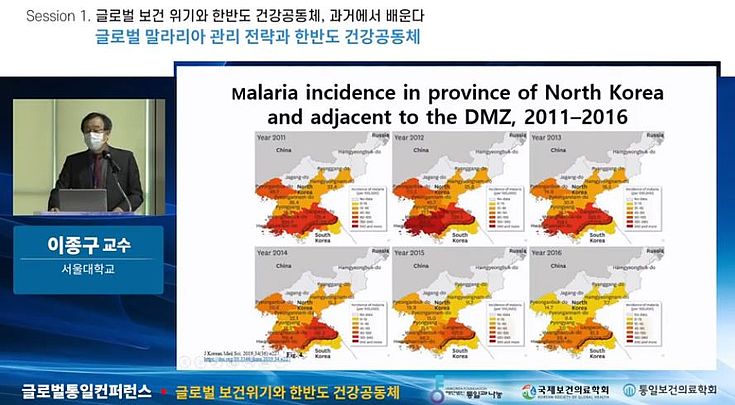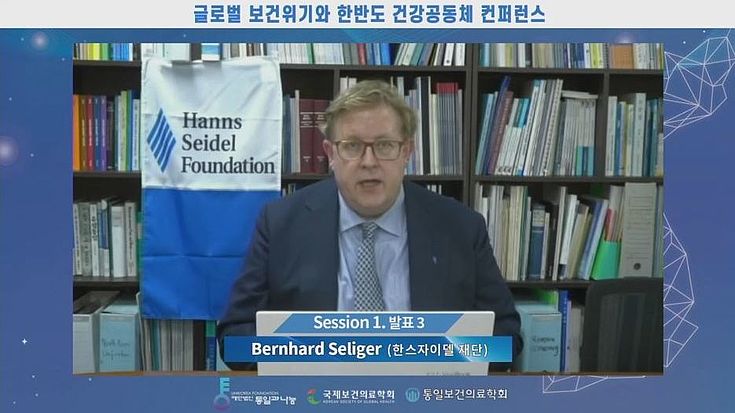Webinar
The Global Health Crisis and the Health Community of the Korean Peninsula Webinar

The Global Health Crisis seminar started with opening remarks by Sang-eun Park, the president of the Korean Society of Global Health, Association of Healthcare for Korean Unification. The welcome remarks were given by several figures, including In-young Lee (Minister of Unification), Young-soo Shin (Secretary-General of the WHO Western Pacific Region), Ki-moon Ban (8th Secretary-General of the United Nations), and Min-seok Kim (Chairman of the National Assembly Health and Welfare Committee).

The event started with a keynote speech by Professor Jeffrey D. Sachs from Columbia University, about: „Global Health Crisis, Duty of the Global Society regarding the health community of the Korean Peninsula“. Prof. Sachs stressed the lack of attention for global health cooperation within the international community. He claimed that the current Covid-19 situation made countries to only focus on Covid-19 response measures and ignore the real issues of health and health systems. Thus, as he describes, the current focus of the world sets unfavorable conditions for the development of global health systems. After a brief summary by Prof Sachs, Q&A sessions followed. The most prominent discussion during the Q&A session was on the possibility of medical cooperation between North and South Korea. Prof. Sachs argued that South Korea may have the capacity to develop vaccines and therapeutics, which is a hopeful sign for cooperation, as it would be appealing for North Korea to self-produce, Prof. Sachs added.

After Professor Sachs‘ keynote speech, followed several presentations from various experts in the medical and political field. Professor John Linton from Yonsei University shared his presentation on the global management of Tuberculosis and the health community of the Korean Peninsula, and Professor Jong-Koo Lee from Seoul National University delivered his presentation on the global management of Malaria and the health community of the Korean Peninsula. Along with discussion sessions inviting Mr. Kim Heejin and Professor Kim Chunbae, the presentations and discussion sessions enriched the audiences‘ understanding of Tuberculosis and Malaria, as well as feasible response measures.

Dr. Bernhard Seliger, the representative of the Hanns Seidel Foundation Korea office, also gave a speech during the event, with the title of ‘Medical cooperation of Germany and Korea’. Dr. Seliger first talked about the East German health system. As he explained, East Germany had a fully-funded health care system that was very similar to the Soviet health system. By utilizing propaganda, East Germany proposed the „better universal health care“, which in fact was revealed as an illusion rather than a practical procedure. Accordingly, East Germany cooperated with West Germany to receive expertise and benefit from the West‘s superior health system, Dr. Seliger explained. Dr. Seliger claimed that since 1990 when the Western structure in the health care system was successfully delivered, and since the end of the state-run policlinic system, extreme demographic challenges happened in East Germany. Particularly, the severe life-expectancy gap getting removed. Dr. Seliger then moved to the medical status of North Korea under Kim Jong-un‘s regime. Dr. Seliger presented pictures of North Korean medical sectors and argued that it is nearly identical to East Germany in that they engage in spreading the propaganda of „free, universal, and great health care“. However, the reality was very different, he explains – the North Korean healthcare system is near collapse. Fortunately, Dr. Seliger mentioned that there are several hospitals in Germany today that demands reactivation of medical cooperation with North Korea. Dr. Seliger argued that especially, since there are shortages of nurses in Germany, hopefully, exchanges of nurse students from North Korea can potentially become the first step to reactivate cooperation between the two countries. The next proposal suggested by Dr. Seliger was ‚restarting academic cooperation as part of humanitarian aid‘. Dr. Seliger claimed that North Korea lacks complicated, technical resources, which could be fulfilled by such projects. And finally, Dr. Seliger argued that direct hospital-to-hospital cooperation should be considered. Lastly, Dr. Seliger suggested that it is best to make the medical cooperation internationally, inviting many other private and public entities as it seems to be a more feasible way of building bridges.
